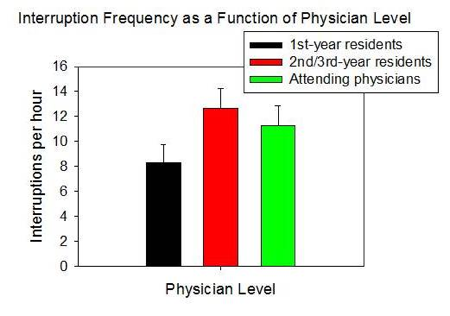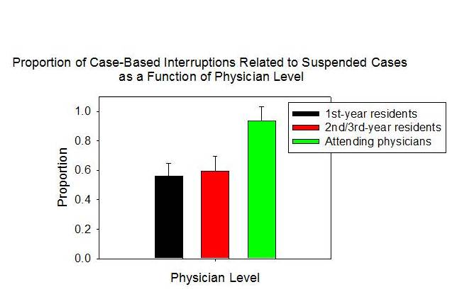More experienced ER doctors were interrupted more often than less experienced ones. Because they handled significantly more cases than junior residents do, senior residents and attendings typically had more suspended goals.

For physicians at all levels of experience, a high proportion of the interruptions served specifically to update them on a suspended case. This proportion was highest for attending physicians, who were juggling the largest number of cases. Interruptions, then, were by no means random, but instead appeared to support ongoing case demands.

Thus, interruptions certainly are not random, and their pattern is consistent with the possibility that they serve an adaptive purpose for supplementing the physician’s limited working memory in a cognitively taxing environment. The simulation studies tested this hypothesis experimentally.